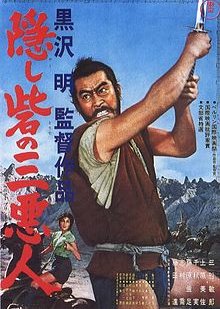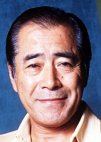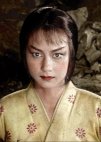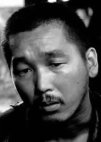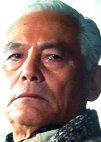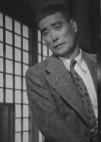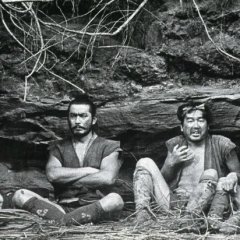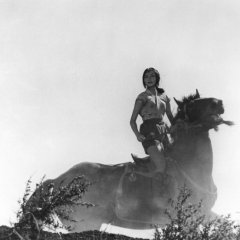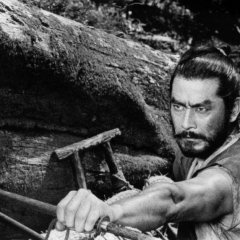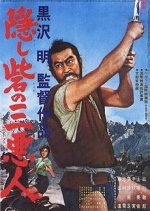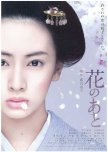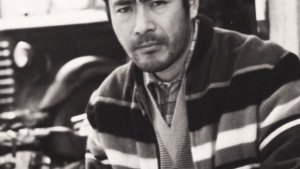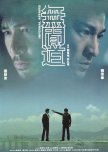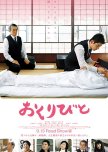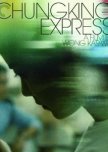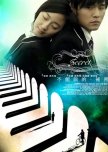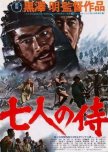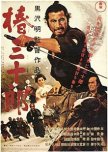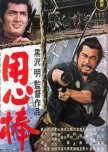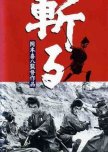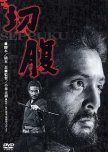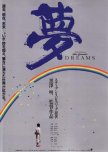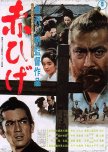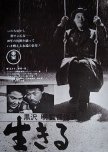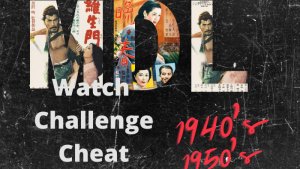 WCCS: Japanese movies from the 1940's and 1950's
WCCS: Japanese movies from the 1940's and 1950's - Italiano
- 中文(台灣)
- English
- magyar / magyar nyelv
- Titolo Originale: 隠し砦の三悪人
- Conosciuto Anche Come: Kakushi-toride no san-akunin
- Sceneggiatore & Regista: Kurosawa Akira
- Sceneggiatore: Oguni Hideo, Kikushima Ryuzo, Hashimoto Shinobu
- Generi: Azione, Militare, Avventura, Storico
Cast & Ringraziamenti
- Mifune Toshiro Ruolo Principale
- Uehara Misa Ruolo Principale
- Chiaki Minoru Ruolo Principale
- Fujiwara Kamatari Ruolo Principale
- Fujita SusumuGeneral Hyoe TadokoroRuolo di Supporto
- Kosugi YoshioAkisuki soldierRuolo di Supporto
Recensioni

Questa recensione può contenere spoiler
"The world is dark. Life is just a dream."
Director Kurosawa once again asks what does it take to be happy in a violent and unpredictable world? This time he frames that theme in a 16th century escape picture with a spunky princess, a stalwart General, and two greedy idiots.Two peasants who have escaped from capture and grave digging are the eyes into this story. Much like C3PO and R2D2, they are the lowest ranking people in the movie and it starts and ends with them. Always on the hunt for gold, their greed defines their relationship which is filled with endless squabbling and fighting. Once they find two hidden pieces of gold, whetting their insatiable appetites, Mifune appears as General Rokurota Makabe. Little do the two vagabonds know that their simple escape plan from the occupied country saves their lives. Rokurota enlists their help in transporting gold and a young woman to safety. Of course, Yuki is no mere scantily clad youth, she is a princess, the last remaining hope of her clan Akizuki (Alderaan anyone?). The princess was raised as a boy and is headstrong and courageous.
Yuki actually seems to be enjoying their time on the run, reveling in her freedom. Rokurota , ever the traditionalist, struggles to deal with her egalitarian ideas. Kurosawa is once again bucking the old world order and class systems. The two scoundrels have little loyalty and are only in the deceptive march through enemy territory to survive and get their hands on the gold. Because of their greedy actions they endanger the small group on several occasions. Yuki has Rokurota buy the freedom of one of her people who has been sold as a sex slave, against Rokurota's judgement. On the road they are accosted by soldiers and Rokurota has to engage them in battle and chase two of them down on horse. This particular scene was magnificent. No fake horse head bobbing up and down, Mifune with sword extended chases his enemies down. Brilliant. He ends up in the enemy camp where he challenges the leader, General Tadokoro, to a duel which Rokuroto wins and shows mercy to his conquered foe.
The small group ends up at a bonfire where the locals are singing, "The world is dark. Life is but a dream." The princess really listens to the words and smiling joins happily in the dance. Afterwards due once again to the scoundrels greedy actions, the princess, her general, and the maid end up captured. An embittered Tadokoro faces them before their deaths and the princess' dignity and words have an affect on the enemy. Will he choose tradition or make the morally significant choice?
All of the main characters are faced with choices and have to choose whether to remain in a rigid system or to pick a different more merciful way. Sometimes kindness is rewarded, sometimes it is not. As always, even in this comedy, the world is shown as a dangerous place.
I should take a moment to explain my Star Wars comments. It’s common knowledge that George Lucas drew inspiration from this film for the original Star Wars though it looked to me minimally. Kurosawa drew inspiration from the American director Ford, who filmed epic Westerns. For me this film seemed more like The Good, The Bad and The Ugly. And of course Leone was inspired my Kurosawa. Art is at its best when people draw ideas from different sources and beyond artificial boundaries and then utilize them in a different manner.
We’re all richer for it.
I didn't care for the two scoundrels whatever they were intended to be, everyman, caricatures, or just a couple of bad guys in need of redemption. Their greed, fighting, betrayals and rapey longings for the princess turned me off. They may have been exhibiting some of man's baser nature but drawing straws to see who would rape the princess turned me off.
Mifune Toshiro was perfect as the General bound to protect the princess at all costs, going so far as to sacrifice his sister. Lithe, athletic, and quick, he showed what he was capable of during the lengthy spear fight with Fujita Susumu's Tadokoro. Fujita as a more moral Darth Vader gave a depth, honor, and humor to the old general. For me, the weaker cast member was Uehara Misa as Princess Yuki. When she played a mute, she did well acting with her eyes and facial movements. Even without speaking she guided the action, always brave and assured. But when she spoke she was usually yelling which was distracting. Goes back to yelling doesn't make a woman strong.
Kurosawa's use of wide screen shooting brought an epic style and feel to the film whether it was the valiant group trekking through the mountains, dark forest, or riding horses over the hills. I love how he was able to show people in the forefront, middle and background in the city scenes giving great visual depth.
One thing that always shocks me when watching these older samurai films is how little clothes some of the men wear. Modern samurai films cover them all up. Even Princess Yuki was in what amounted to shorts. The characters and extras all looked real--dirty, sweaty, and with messed up hair. They showed a variety of war gear and weapons as opposing forces engaged. The first fortress may have been battered by war, but was still impressive and some of the shots, especially during a slave revolt were visually a treat. The world Kurosawa and his team built felt truly inhabited.
Throughout the film, characters were required to choose. Will they continue to live the illusion, a world guided by greed and violence? Or will they let go and live a life where everyone can be happy? Or is it even possible in this dark world? Can people let go of the past's traditional shackles and be treated equally and kindly? Or is it a never ending cycle of pain? The Hidden Fortress may have been a comedy with exciting fights and a thrilling escape, but underneath it wanted to be bigger and seek to escape more than just a mortal enemy but a divisive suffering existence as well.
10/27/22
Questa recensione ti è stata utile?

"Hidden Fortress" is a little like "Yes, Madam!" The sense that the headline stars (reviews spent so much time hyping up) with the traditional straight-man roles, are sort've secondary to a tale of a comedic odd couple. The pair who fumble their way through circumstances grander than them.
I can definitely see the influence it had on "Star Wars", and with this in hindsight, George Lucas's film feels like a dilution of Hidden Fortress's less flashy approach to storytelling.
Questa recensione ti è stata utile?

